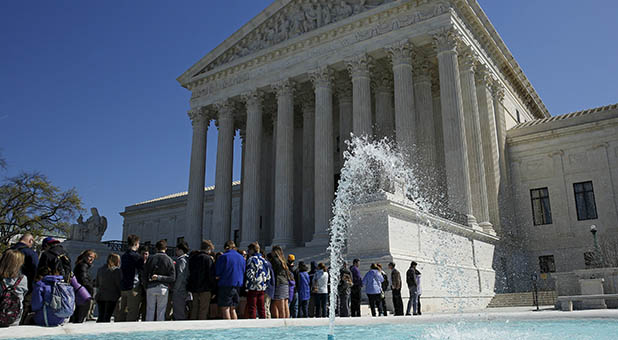Supreme Court Issues Shocking Unanimous Decision
In a stunning unanimous opinion, the U.S. Supreme Court determined members of state legislatures represent all of the residents of their districts—including those who have entered the country illegally.
The majority opinion, handed down in the case of Evenwel v. Abbott, was authored by Associate Justice Ruth Bader Ginsburg with five of the remaining justices concurring. She wrote the Framers and Congress at the time the 14th Amendment was ratified agreed that state legislative districts should include the entire population, not just those eligible to vote.
A group of Texas voters had challenged this process, stating that in their district, which has a very large number of illegals, any count that includes those who have entered the country illegally devalues their representation. In other legislative districts, particularly those with much fewer illegals, the ratio of eligible voters to total population is much higher, they argued.
“Adopting voter-eligible apportionment as constitutional command would upset a well-functioning approach to districting that all 50 States and countless local jurisdictions have followed for decades, even centuries,” she wrote. “Appellants have shown no reason for the Court to disturb this longstanding use of total population.”
Associate Justices Samuel Alito and Clarence Thomas agreed that Texas had done nothing wrong in drawing up its legislative districts based on total population. However, they disagreed that it was the only way districts could be drawn up.
In his own opinion, Thomas wrote the court has “never provided a sound basis for the one-person, one-vote principle.” He said that is an issue the court has struggled with for 50 years, and the majority opinion still fails to address.
He said that is because there is no basis for it.
“The Constitution does not prescribe any one basis for apportionment within States,” he wrote. “It instead leaves States significant leeway in apportioning their own districts to equalize total population, to equalize eligible voters, or to promote any other principle consistent with a republican form of government. The majority should recognize the futility of choosing only one of these options. The Constitution leaves the choice to the people alone—not to this Court.”













